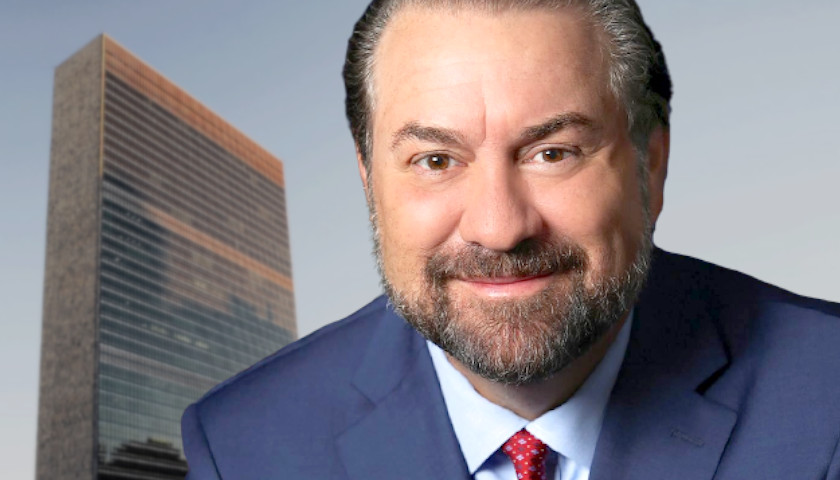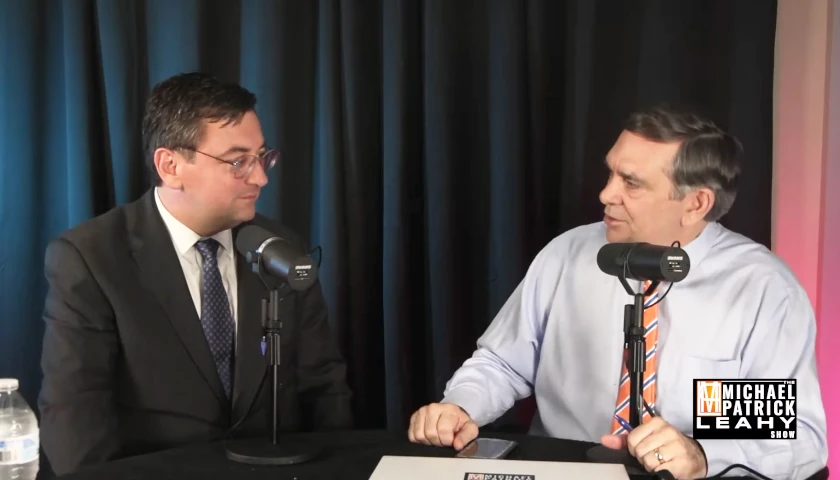Arizona Attorney General Mark Brnovich and 18 other attorneys general served six of the largest American banks this past week with civil investigative demands. The demands ask for documents related to the banks’ involvement with the United Nations’ Net-Zero Banking Alliance (NZBA), which requires member banks to set emissions reduction targets in their lending and investment portfolios to reach net zero by 2050.
“American banks should never put political agendas ahead of the secure retirement of their clients,” Brnovich said in a statement. “These financial institutions are entrusted with protecting a different type of green.”
American banks should never put political agendas ahead of the secure retirement of their clients. I'm proud to be one of the states taking the lead in investigating six major banks over ESG investing.
Read more: https://t.co/Sl0dGI8cS0— Mark Brnovich (@GeneralBrnovich) October 19, 2022
The banks under investigation are Bank of America, Citigroup, Goldman Sachs, JP Morgan Chase, Morgan Stanley, and Wells Fargo. By joining the alliance, banks cannot do business with companies engaged in fossil-fuel-related activities. “This means some farmers, oil leasing companies, and other businesses will be unable to get a loan because of the alliance,” the statement said.
The documents requested discuss the economic impact of transitioning companies served by the banks to net zero by 2050. All communication related to decisions to join global climate initiatives is requested, and whether companies took certain pledges related to any environmental goal beyond what the law requires. The agreement originated from the Paris Climate Accords.
Texas Attorney General Ken Paxton, who joined the coalition, had harsh words for the banks.
“The radical climate change movement has been waging an all-out war against American energy for years, and the last thing Americans need right now are corporate activists helping the left bankrupt our fossil fuel industry,” he said in a statement. Texas is the top state in the country for energy production.
Brnovich has championed challenging businesses over environmental, social, and governance-related (ESG) practices. He started investigating major businesses last November. In early August, he organized and led a coalition of 19 states sending a letter to the BlackRock investment company used by many states, “calling out its practices of putting leftist politics above investors’ interests and returns.”
In March, Brnovich authored an article for The Wall Street Journal arguing that ESG may violate antitrust laws. In mid-August, he joined a coalition of 20 other states filing formal comments regarding a U.S. Securities and Exchange Commission proposed rule that would add “onerous requirements” for investment funds that consider ESG factors in their investment decisions.
That same month, The Wall Street Journal published an editorial that declared, “Recent events show that the backlash against ESG investing has finally arrived.” The article states that while BlackRock CEO Larry Fink adopted the practice voluntarily, the ESG movement is getting little scrutiny in the investment industry, so eventually it may likely become an industry standard, followed by regulatory mandates.
Missouri led the investigation, which was joined by Arkansas, Indiana, Kansas, Kentucky, Louisiana, Mississippi, Montana, Nebraska, Oklahoma, Tennessee, Texas, and Virginia, in addition to Arizona. Five other states that joined can’t be named due to state laws or regulations regarding confidentiality. Links to the letters to each bank are posted on the Texas Attorney General’s website.
Arizona Treasurer Kimberly Yee divested state funds in Unilever last year after its subsidiary, Ben and Jerry’s ice cream, boycotted Israel’s settlements, violating Arizona law. Brnovich and a coalition of other attorneys general sent a letter to Ben and Jerry’s last November demanding they drop the boycott. Unilever finally shut down Ben and Jerry’s boycott in June.
Last month, Yee banned using ESG scoring when determining state investments. She also gave a major global financial firm, Morningstar, 30 days to prove that it wasn’t complicit in a subsidiary company’s alleged boycott of Israel due to ESG policies. Arizona does not currently have any public funds invested in Morningstar. Still, if the company is found to violate Arizona’s anti-BDS law, it will be placed on the prohibited investment list.
– – –
Rachel Alexander is a reporter at The Arizona Sun Times and The Star News Network. Follow Rachel on Twitter. Email tips to [email protected].





